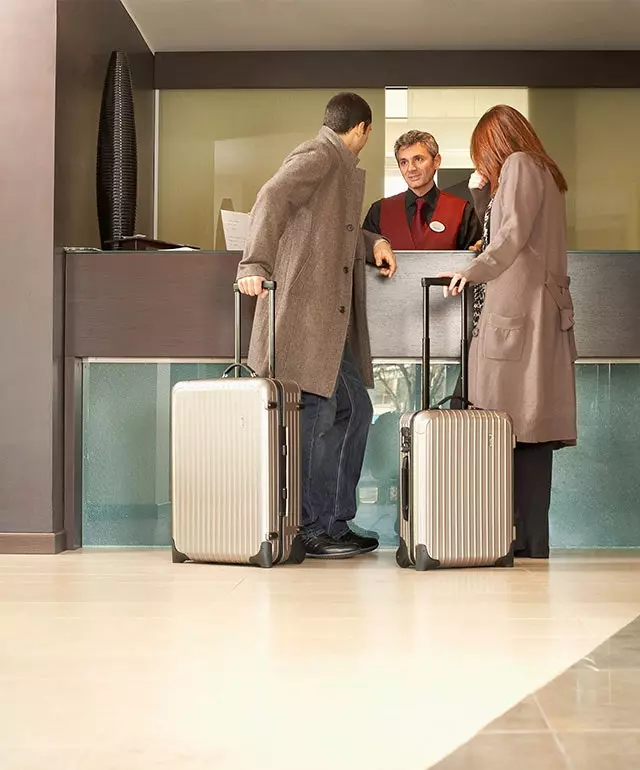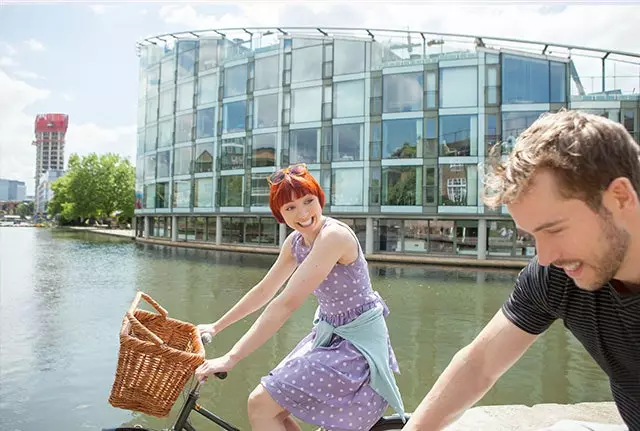
TripAdvisor, Yelp, Foursquare, Google Places... useful or harmful?
PROBLEM #1: ARE THE OPINIONS REAL?
The opinion platforms say that they are, although they do not deny that they can strain some rabbit, promoted by companies that are both for themselves and against the rest. Or even as a kind of "joke" to demonstrate the system failures.
"Posting false reviews violates TripAdvisor's Terms of Use, as well as certain laws regarding unfair competition or consumer protection in many countries. We invest a lot time, effort and money in identifying and preventing fraudulent activities on our website. Despite this, with more than 80 new contributions every minute of the day , we are aware that some false opinions can sneak in and that they may appear published for a while", writes the famous website in its Integrity Policy.
In fact, the company in 2014 it was already freed from a fine of half a million euros imposed by the Italian justice as a result of a lawsuit from hoteliers and restaurateurs in the area, who complained of receiving false reviews about their establishments . However, in 2011 he did have to pay the amount demanded by France, which fined both the review giant and Expedia and Hotels.com with 300,000 euros under the accusation of fraudulent practices of various kinds

Can an establishment close due to a bad review?
That same year, TripAdvisor was investigated by the British Advertising Standards Authority (ASA), which led to the prohibition of advertising as a website of "real opinions by real people" , since it was considered that they could not prove that fact.
For its part, Yelp , whose relevance is greater in the United States, also tends to receiving blows for the falsity of some of his criticisms , which have earned him having to reveal the real name of some other anonymous user for defamation (and sometimes those same users have been fined). Or, even, for its "vagueness". On the other hand, Yelp itself has been trolled for the curious cause-consequence relationship registered by some establishments between refusing to advertise on the web and the appearance of negative comments in the same ...
Despite everything, thanks to studies such as the one carried out by HotelReporting, we know that most of the reviews are at least based on real experience, Well, when comparing the opinions expressed in Booking (which only admits reviews from those who have paid for their stay in a hotel or other service) with those of TripAdvisor (which allows anyone to report their point of view), the difference did not reach 2%. Although, as he was able to see first-hand the chef with a Michelin Star Macarena de Castro , the fact that the person giving the opinion was actually there does not change things too much.

I was here!
PROBLEM #2: BLACKMAILING THE ESTABLISHMENT... AND EVEN CUSTOMERS
A diner arrives at a restaurant, finishes his lunch and ask for food "or I'll put you to give birth on the internet". ** It happens, and much more than we think **. In fact, Meliá Hotels tell us that it is "very common", although, in their case, there has been no case of blackmail that has transpired, or in which they have yielded: "They are usually disagreements that clients present while they are staying, and the hotel itself solves the situation during their stay ".
The system is going in that direction. Managers, such as Adele Gutman, Vice President of Sales, Marketing and Revenue of the New York chain Library Hotel Collection they already train their employees to avoid these insults , using brutal kindness as a weapon.
In her opinion, “what some hoteliers say is blackmail is, 99% of the time, simply a very tired and frustrated traveler. We train our staff to be compassionate and disarm angry customers by being nice and trying to make things easy for them. Even if you finally can't solve their problem , at least the guest can see that someone is actually trying to make things better for him”, comments the vice president.

The best thing to counter criticism: a smile
Tourism experts **Cristiana Oliveira, Rector of the European University of the Canary Islands, and Sergio Guerreiro, professor at the European University of Portugal **, are of a very similar opinion. "The ethics in the provision of the service must continue to be the basic principle of the activity of a hotelier. If they carry out their activity in a clear and transparent , the market will perceive this disproportionate behavior of the client, who has a circumstantial Power, and will eventually recognize the effective provision of the hotelier, their ability to offer a quality service and to build a good and honest relationship with their clients", they comment.
Likewise, platforms such as TripAdvisor include a protocol so that businessmen can report threats to their Management Center before the comment is written on the web, as pointed out by Kevin Carter, director of Public Relations for the company. “Our experts in detecting fraud will investigate it and where they find evidence of a blackmailing behavior , they will take action to stop those comments before they reach the page.”
However, the problem is twofold: there are also establishments that threaten their customers with fines if they throw negative reviews on them. This was the case of the Broadway Hotel in Blackpool (England), which included a clause explaining that there would be a £100 surcharge for each comment criticizing them in the networks, and in fact, it was applied to a couple of travelers. In the end, the local council forced them to return the money and today, the hotel is for sale.

Some pour their opinions in the restaurant itself, in case they forget something...
PROBLEM NO. 3: CAN NEGATIVE REVIEWS CAUSE AN ESTABLISHMENT TO CLOSE?
There are cases in which it seems so , others in which it is not so clear , and even the University of Maryland has created a application to predict a restaurant's chances of closing based on its Yelp reviews . In fact, according to what Pablo Ruisoto Palomera, Professor of the Department of Psychology at the European University, tells us, people remember bad comments more and in more detail: " We tend to trust negative comments more and they are more resistant to incongruous information than positive ones," he explains.
"However -continues Ruisoto-, it is considered that there is a ratio according to which we tend to avoid leaving harmful opinions, although, ironically, we tend to prefer to receive negative feedback ". Likewise, the professor leaves us with another interesting piece of information: "If we consider as a basis the results of a study on activity on Twitter carried out in the United Kingdom, women would be more active on these networks, while the men would tend to leave more negative reviews ", he concludes.
In any case, due to the virulence with which websites such as TripAdvisor Warning take the matter, we would say that hoteliers they perceive the possibility of closing their businesses due to criticism as a more than real threat . In fact, tourism experts Oliveira and Guerreiro also agree that the strength of these platforms should not be underestimated.

We are more likely to comment on positive experiences
"Currently, the power of the Internet and social networks is indisputable. According to the latest Phocuswright report, in Europe, income generated by online channels planned to reach 125,000 billion in 2015 and, in the same way, a growth at a rate of 8% per year until 2017, exceeding 146,000 million. These figures represent about 50% of the income generated by the travel industry".
" In the specific case of the networks mentioned -they continue- the power that the consumer has is much greater, since the reputation of brands depends largely on their ability to satisfy the customer and get the consumer to be the prescriber of those products or services, thus raising said reputation. Due, negative feedback from customers can have a detrimental effect in the image of the hotel chain and in its ability to attract new customers".
But what can accommodations do to control these detrimental consequences? Oliveira and Guerreiro also reply to this: "The key word is reputation management. The administration of social networks must be incorporated into the cycle of the company, as an integral part and, increasingly important, of its marketing policy and customer service. satisfied consumers they are a reflection of a good image and the good service provided by the hotel. Satisfaction must be managed with an increasingly personalized look , aimed at the different customer profiles, who are increasingly more informed and more demanding".

The best strategy for the owner: respond to attacks
Just in that direction they go chains such as Meliá, which have introduced new policies at the same time that opinion platforms gained importance on the internet. "To begin with, we monitor the profile of our hotels on a day-to-day basis to respond -according to own guidelines and common to all Meliá- to the comments published by the client s, offering a personalized response to each of the cases. If we find a negative opinion, our procedure is to always apologize for not having met the expectations of that client, given that he is our primary goal, but from there, we are aware that our company policies do not have to be to everyone's liking . We always try to search a solution to what the guest asks us, analyzing each situation".
"Furthermore - they continue from the company - we do positioning tracking that our hotels have, and they also carry out actions to encourage the increase of comments , inviting the customer to leave their opinion on these networks when we send them a satisfaction survey. Finally, we improved our systems to be able to give you visibility on our website to opinions that our customers write on TripAdvisor".
With all these actions, it seems that the people of Meliá are on the right track, since "The more the establishment engages and interacts , the more likely it is that travelers make a reservation", they explain from TripAdvisor. In addition, "70% of travelers are more reluctant to book a hotel that responds aggressively and defensively to unfavorable opinions", they say from the company, as is extracted from this complete infographic.

53% of travelers do not make the reservation until they read the opinions
